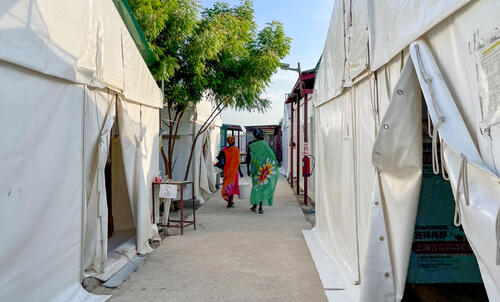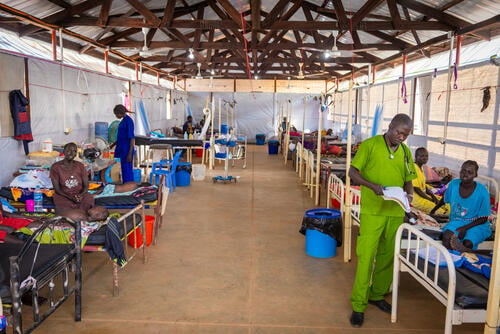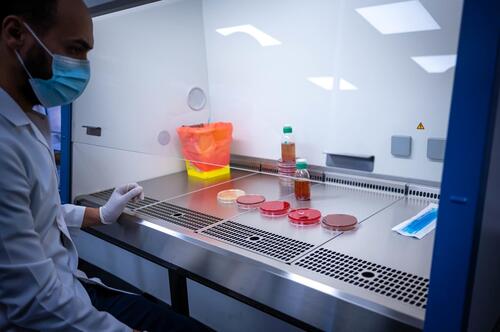In South Sudan, over seven million people are expected to face acute food insecurity or worse between now and July. Among them, people living with HIV and/or tuberculosis (including drug-resistant, or DR-TB) are highly impacted, with their disease worsening due to the lack of sufficient food and adequate nutrition.
People living with HIV and/or TB (including DR-TB) need sufficient food and nutrition to fight their disease and continue taking their lifesaving medications. Medications need to be supported with food to counter the dual impact of their disease and the already existing food scarcity. Yet, this is not the situation that more and more people living with HIV, tuberculosis, and people co-infected with HIV/TB face in Leer, Unity State, as people have to cope with a lack of sufficient food and nutrition.
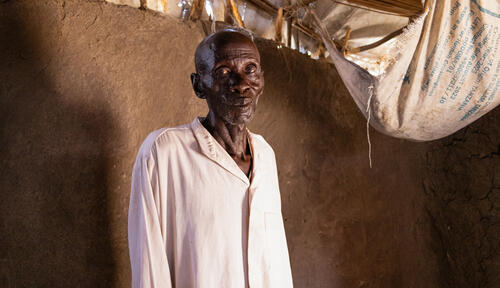
“Life is very hard here because we have nothing. I fell sick with HIV and TB co-infection three months ago, so I cannot work, and I have no savings,” says James. “All we have are water lily roots, but that is not enough. That is why I usually adjust my treatment to my food intake. If I take the treatment without eating, I get dizzy, shiver, and have severe stomach pains.”
A vicious circle that is hard to break
Inside the Médecins Sans Frontières (MSF) facility in Leer, Gatkuoth, a new patient admitted two days ago shares the same challenges. “I had TB four years ago, but at that time, I completed the treatment quite easily. Now, with the situation deteriorating, it is much harder because I have no food to eat the whole day, which makes it difficult for me to cope with my treatment.”
Prone to heavy flooding and recurrent insecurity, Leer County in South Sudan is an isolated and difficult place to live. For several years, people have been reluctant to cultivate their land for fear of losing it all. They therefore depend either on the food available on the market, which inflation is making it increasingly difficult to buy, or on food assistance, which has been considerably reduced due to budget cuts. On the top of this, population displacement from a war-torn Sudan is putting further pressure on food supplies in the area and increasing healthcare needs. Since April 2023, more than 60,000 people - returnees and refugees - have settled in Unity State.
If people are not supported with food, our programme will not succeed. On a national level, MSF is deeply concerned about the ongoing prevalence of HIV and TB in South Sudan.Daniel Mekonen, MSF’s medical team leader in Leer
As a result, under nutrition spreads throughout the community, creating a vicious circle. On the one hand, it is a major risk factor for disease, as immune defences are considerably reduced, and on the other hand, it can have a direct impact on adherence to HIV/TB therapy. Food and nutrition support for people living with TB and/or HIV (apart from other support mechanisms like transport costs) are some of the key ‘treatment enablers’, which has proven to improve patient health condition, influence adherence to treatment, and the overall outcomes.
Vulnerable groups must not be forgotten
“Food insecurity is becoming a problem in Leer,” explains Daniel Mekonen, MSF's medical team leader in Leer. “We have a cohort of more than 600 patients co-infected with tuberculosis and HIV, and many of them tell us the challenges they have adhering to the treatment properly is because of the lack of food. This is not without consequences.”
“We are receiving more and more patients at an advanced stage, in a serious condition, difficult to treat, and others are developing resistance to antimicrobials,” says Mekonen. “We used to see eight new patients a month, but recently that figure has doubled, and risen to 16 a month.”
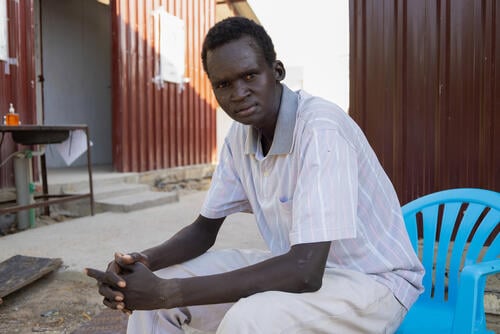
“We see patients with poor levels of nutrition, missing their medication and not able to attend care, with lost to follow-up rates increasing,” continues Mekonen. “If people with HIV and TB are not supported with sufficient food and nutrition, and other treatment support mechanisms, we will expect more and more patients with deteriorating clinical condition and poor clinical outcomes. On a national level, MSF is deeply concerned about the ongoing prevalence of HIV and TB in South Sudan.”
MSF, which began its work in Leer, Unity, in 1989, continues to be one of the few organisations offering medical care in the area. As malnutrition rates increase, food distribution is inadequate and lacks priority criteria. MSF calls upon other organisations and agencies providing food support to expand their efforts and focus on targeting and prioritising groups of people at at risk, including people living with HIV and/or tuberculosis.



